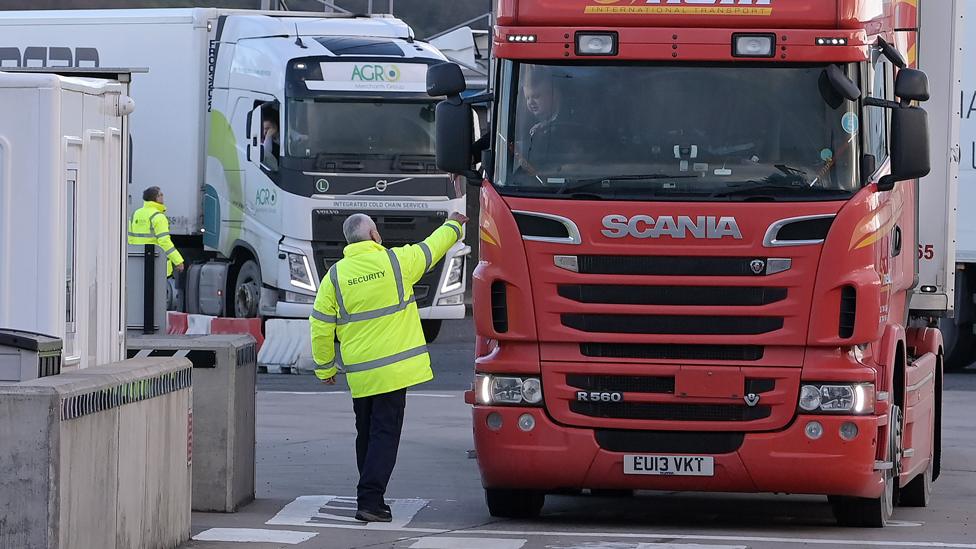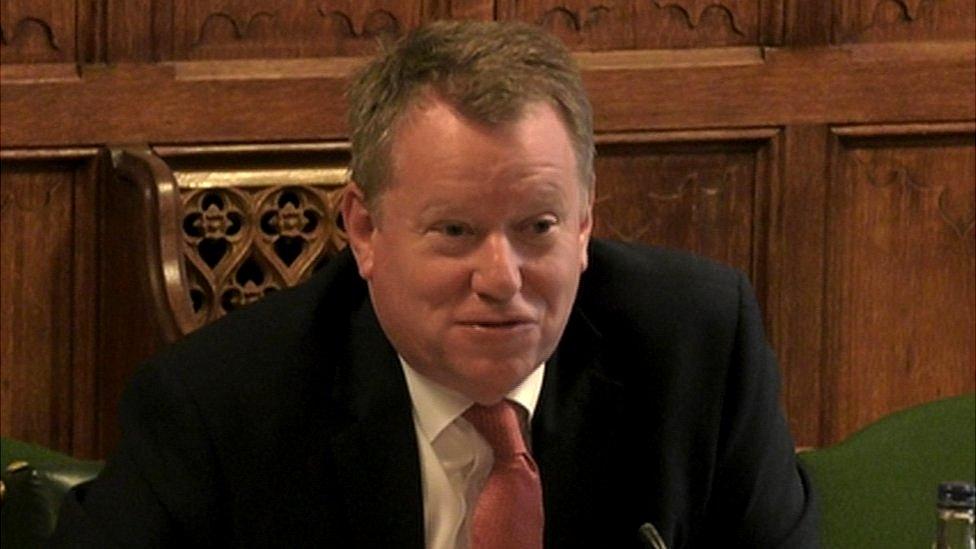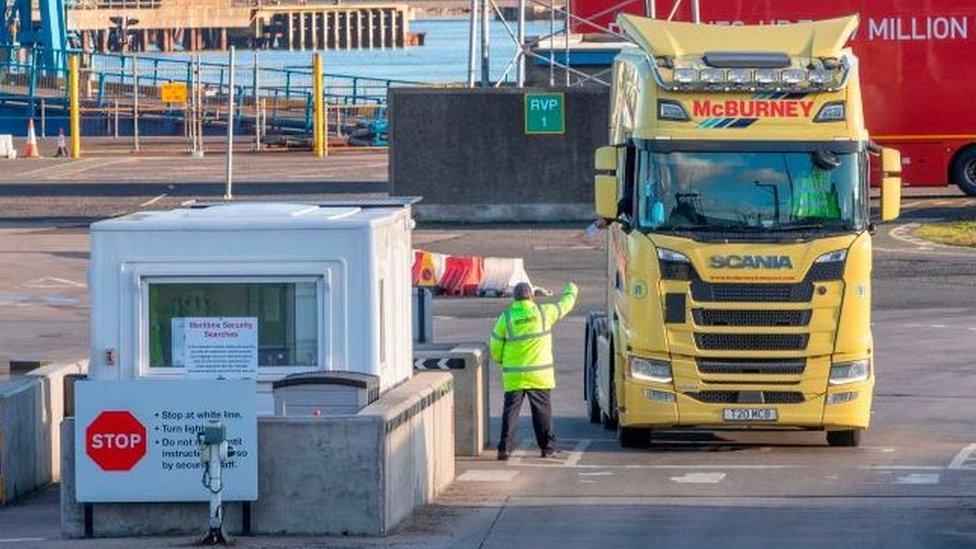Northern Ireland Protocol problems 'need to be resolved by autumn'
- Published

Post-Brexit inspections take place at Northern Ireland ports and customs documents have to be filled in
The UK government wants issues around the Northern Ireland Protocol settled by the autumn "one way or the other", its lead Brexit negotiator has said.
Lord Frost described the current negotiations with the EU over the protocol as "constructive".
However he told MPs on the House of Commons EU scrutiny committee that "gaps between them remain significant".
He said they were trying everything to "bridge the gaps" on the Brexit deal which prevents a hard Irish border.
The protocol is the Brexit deal which prevents a hard Irish border by keeping Northern Ireland inside the EU's single market for goods.
That also creates a new trade border between Northern Ireland and the rest of the UK, something the EU accepts is causing difficulties for many businesses.
Unionist politicians say the arrangement undermines Northern Ireland's place in the UK.
'Strong power'
Lord Frost warned that if the current negotiations with the EU fail to reach a "sensible solution" then triggering Article 16 will be the alternative.
But he refused to be drawn on what other measures the government might take beyond triggering it if it fails to resolves the current difficulties.
Article 16 of the protocol sets out the process for taking unilateral "safeguard" measures if either the EU or UK concludes that the operation of the deal is leading to serious problems.

Lord Frost is expected to meet his EU counterpart Maroš Šefčovič later this week
Lord Frost said it was a "strong power" designed to stabilise the situation and deal with the "harmful consequences", but he remained hopeful the negotiations would be enough to find a solution.
"I don't think any government would rule anything out when it comes to the territorial integrity of the country which is what this is," he told MPs
Lord Frost also insisted the Northern Ireland Protocol is "compatible" with the Act of Union which he said the government made clear in recent legal arguments in court.
Negotiators from London and Brussels have been locked in talks for more than a week after the EU published its proposals to break the deadlock on the protocol.
The EU has suggested a package of reforms which would reduce the practical impacts of the protocol.
The UK wants more fundamental change, including the removal of the European Court of Justice (ECJ) from its oversight role in the deal.
Lord Frost welcomed some of the EU proposals, which he said had acknowledged Brussels was ready to change its laws to deal with one issue.
But he said the problem was the proposals "don't go far enough".
MPs questioned Lord Frost about the role of the ECJ in any future disputes.
Lord Frost said: "We can't have the Courts of Justice settling disputes between us on the protocol."
Horizon membership
He also told MPs that the EU still had not ratified the UK's associate membership of Horizon, the science funding scheme.
Lord Frost said the government was "getting quite concerned about this" and that it raised "questions of good faith".
"It was agreed at the end of last year that we would be able to participate in Horizon/Capernicus and so on and the only reason it wasn't finalised fully at the time was because the EU had not put in place its own legislation," he said.
"So we were waiting for that to happen and it has now happened and there's absolutely no reason why we shouldn't be fully part of Horizon and indeed the EU has put in place these arrangements for Norway, for Iceland and for the Ukraine."
He added: "Every day's delay is a further day UK entities can't participate.
"It obviously would be a breach of the treaty if the EU doesn't deliver on this obligation."
Related topics
- Published2 February 2024

- Published23 October 2021
